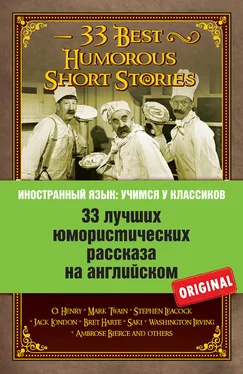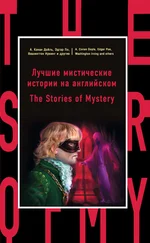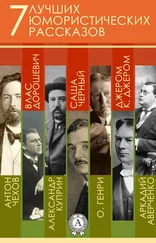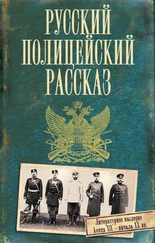‘I don’t know,’ Bronson replied. ‘Better ask her. Maybe you overdid your politeness. Overdone courtesy is often worse than boorishness. You may have been so polite on some occasion that you made Miss Hollister think you considered her an inferior person. You know what the poet insinuated. Sorosis holds no fury like a woman condescended to by a man.’
‘I’ve half a mind to write to Mrs. Barrows and ask her what I did,’ said Willis.
‘That would be lovely,’ said Bronson. ‘Barrows would be pleased.’
‘True. I never thought of that,’ replied Willis.
‘You are not a thoughtful thinker,’ said Bronson, dryly. ‘If I were you I’d bide my time, and some day you may get an explanation. Stranger things have happened; and my wife tells me that the Barrowses are to spend the coming winter in New York. You’ll meet them out somewhere, no doubt.’
‘No; I shall decline to go where they are. No woman shall cut me a second time – not even Mrs. Barrows,’ said Willis, firmly.
‘Good! Stand by your colors,’ said Bronson, with an amused smile.
A week or two later Willis received an invitation from Mr. and Mrs. Bronson to dine with them informally. ‘I have some very clever friends I want you to meet,’ she wrote. ‘So be sure to come.’
Willis went. The clever friends were Mr. and Mrs. Barrows; and, to the surprise of Willis, he was received most effusively by the quondam Miss Hollister.
‘Why, Mr. Willis,’ she said, extending her hand to him. ‘How delightful to see you again!’
‘Thank you,’ said Willis, in some confusion. ‘I – er – I am sure it is a very pleasant surprise for me. I – er – had no idea —’
‘Nor I,’ returned Mrs. Barrows. ‘And really I should have been a little embarrassed, I think, had I known you were to be here. I – ha! ha! – it’s so very absurd that I almost hesitate to speak of it – but I feel I must. I’ve treated you very badly.’
‘Indeed!’ said Willis, with a smile. ‘How, pray?’
‘Well, it wasn’t my fault really,’ returned Mrs. Barrows; ‘but do you remember, a little over a year ago, my riding up-town on a horse-car – a Madison Avenue car – with you?’
‘H’m!’ said Willis, with an affectation of reflection. ‘Let me see; ah – yes – I think I do. We were the only ones on board, I believe, and – ah —’
Here Mrs. Barrows laughed outright. ‘You thought we were the only ones on board, but – we weren’t. The car was crowded,’ she said.
‘Then I don’t remember it,’ said Willis. ‘The only time I ever rode on a horse-car with you to my knowledge was—’
‘I know; this was the occasion,’ interrupted Mrs. Barrows. ‘You sat in a corner at the rear end of the car when I entered, and I was very much put out with you because it remained for a stranger, whom I had often seen and to whom I had, for reasons unknown even to myself, taken a deep aversion, to offer me his seat, and, what is more, compel me to take it.’
‘I don’t understand,’ said Willis. ‘We were alone on the car.’
‘To your eyes we were, although at the time I did not know it. To my eyes when I boarded it the car was occupied by enough people to fill all the seats. You returned my bow as I entered, but did not offer me your seat. The stranger did, and while I tried to decline it, I was unable to do so. He was a man of about my own age, and he had a most remarkable pair of eyes. There was no resisting them. His offer was a command; and as I rode along and thought of your sitting motionless at the end of the car, compelling me to stand, and being indirectly responsible for my acceptance of courtesies from a total and disagreeable stranger, I became so very indignant with you that I passed you without recognition as soon as I could summon up courage to leave. I could not understand why you, who had seemed to me to be the soul of politeness, should upon this occasion have failed to do not what I should exact from any man, but what I had reason to expect of you.’
‘But, Mrs. Barrows,’ remonstrated Willis, ‘why should I give up a seat to a lady when there were twenty other seats unoccupied on the same car?’
‘There is no reason in the world why you should,’ replied Mrs. Barrows. ‘But it was not until last winter that I discovered the trick that had been put upon us.’
‘Ah?’ said Willis. ‘Trick?’
‘Yes,’ said Mrs. Barrows. ‘It was a trick. The car was empty to your eyes, but crowded to mine with the astral bodies of the members of the Boston Theosophical Society.’
‘Wha-a-at?’ roared Willis.
‘It is just as I have said,’ replied Mrs. Barrows, with a silvery laugh. ‘They are all great friends of my husband’s, and one night last winter he dined them at our house, and who do you suppose walked in first?’
‘ Madame Blavatsky’s ghost?’ suggested Willis, with a grin.
‘Not quite,’ returned Mrs. Barrows. ‘But the horrible stranger of the horse-car; and, do you know, he recalled the whole thing to my mind, assuring me that he and the others had projected their astral bodies over to New York for a week, and had a magnificent time unperceived by all save myself, who was unconsciously psychic, and so able to perceive them in their invisible forms.’
‘It was a mean trick on me, Mrs. Barrows,’ said Willis, ruefully, as soon as he had recovered sufficiently from his surprise to speak.
‘Oh no,’ she replied, with a repetition of her charming laugh, which rearoused in Willis’s breast all the regrets of a lost cause. ‘They didn’t intend it especially for you, anyhow.’
‘Well,’ said Willis, ‘I think they did. They were friends of your husband’s, and they wanted to ruin me.’
‘Ruin you? And why should the friends of Mr. Barrows have wished to do that?’ asked Mrs. Barrows, in astonishment.
‘Because,’ began Willis, slowly and softly – ‘because they probably knew that from the moment I met you, I – But that is a story with a disagreeable climax, Mrs. Barrows, so I shall not tell it. How do you like Boston?’
The Ghost Club
An unfortunate episode in the life of No. 5010
Number 5010 was at the time when I received the details of this story from his lips a stalwart man of thirty-eight, swart of hue, of pleasing address, and altogether the last person one would take for a convict serving a term for sneak-thieving. The only outer symptoms of his actual condition were the striped suit he wore, the style and cut of which are still in vogue at Sing Singprison, and the closely cropped hair, which showed off the distinctly intellectual lines of his head to great advantage. He was engaged in making shoes when I first saw him, and so impressed was I with the contrast between his really refined features and grace of manner and those of his brutish-looking companions, that I asked my guide who he was, and what were the circumstances which had brought him to Sing Sing.
‘He pegs shoes like a gentleman,’ I said.
‘Yes,’ returned the keeper. ‘He’s werry troublesome that way. He thinks he’s too good for his position. We can’t never do nothing with the boots he makes.’
‘Why do you keep him at work in the shoe department?’ I queried.
‘We haven’t got no work to be done in his special line, so we have to put him at whatever we can. He pegs shoes less badly than he does anything else.’
‘What was his special line?’
‘He was a gentleman of leisure travellin’ for his health afore he got into the toils o’ the law. His real name is Marmaduke Fitztappington De Wolfe, of Pelhamhurst-by-the-Sea, Warwickshire. He landed in this country of a Tuesday, took to collectin’ souvenir spoons of a Friday, was jugged the same day, tried, convicted, and there he sets. In for two years more.’
Читать дальше
Конец ознакомительного отрывка
Купить книгу












